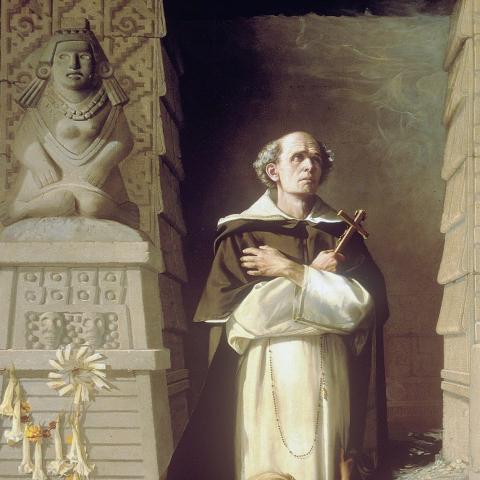
Was Something Lost? Thomas Aquinas, Intellectual Disability, and the 16th century Spanish Colonial Debates
April 27 at 7pm CDT/ 8pm EDT
Free and open to the public.
In the 16th century, there was a subtle shift in the way the Spanish Dominican interpreters of Thomas Aquinas spoke about the anthropological and moral significance of our rational faculties. Historical and textual markers, indicating both the origin and development of this interpretive shift, present amid the fierce engagement of the Spanish colonial debates.
Much has been written on the specific topic of those debates: i.e., the allegations concerning the rational status and moral aptitude of the Amerindian peoples and, by extension, the justice or injustice of the Spanish colonial enterprise in the Americas. However, it is difficult to find any scholarly work on the subject of the Spanish colonial debates: i.e., the anthropological and moral questions relevant to persons who seem to “lack the full use of reason.” Bearing that distinction in mind, between the topic and subject of the debates, this presentation for Lumen Christi is focused on persons who actually (and not allegedly) lack the full use of reason.
Key interpretations, appropriations, and arguments about Aristotle and Aquinas—in the writing of John Mair, Francisco de Vitoria, and Bartolome de las Casas—will be retraced to show how Aquinas’s way of thinking about the intellectual dignity and inalienable contemplative aptitude of persons who “lack the use of reason” came to be displaced from the main currents of Thomistic theological discourse.
Cosponsored by the Lumen Christi Institute. This event is part of the Lumen Christi Institute webinar series on Hispanic Theology made possible by a generous grant from the Our Sunday Visitor Institute.


